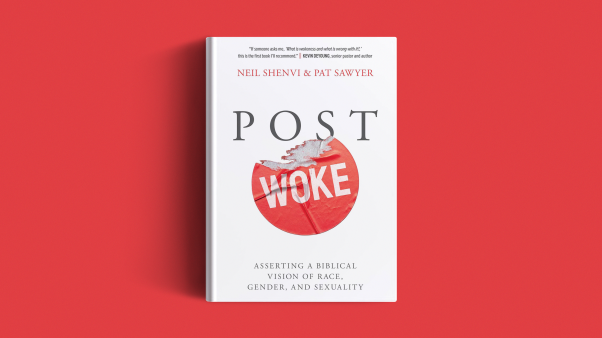Dear Slogan-Lovers:
One of the most sophisticated weapons in our present world war of words is the ubiquitous slogan-button. It comes from the same arsenal of conventional verbal armaments as the bumper sticker, campaign banner, and mimeographed leaflet. But in the service of causes boosted by young radicals, the button is a panic. Consider how the “rads” are using their little lapel-hangers to promote sexual freedom and peace and to express their attitudes toward life.
Champions of the cause of free sex have given birth to these button-slogans: Revive Fertility Rites,” “Candy Is Dandy But Sex Won’t Rot Your Teeth,” Save Water, Shower with a Friend,” and “Chaste Makes Waste.” They also issue warnings: “Apple Pie Makes You Sterile,” “Pornographic Material Can Make You Pregnant,” and “Love Thy Neighbor But Don’t Get Caught.” There are others on this topic, but your blushing penman will let you read those for yourself on somebody’s lapel.
In the cause of unilateral peace the mods have come up with “We Shall Over-kill,” “Support Peace—Or I’ll Kill You,” and “Escalate Minds Not War.” They show little love for the present administration: “Lyndon Johnson Will Go DOWN in History” and “Dean Rusk Uses Polyunsaturated Napalm.”
When it comes to expressing their views on life, they say by button: “I Want to Be What I Was When I Wanted To Be What I Now Am,” or “Neuroses Are Red, Melancholy Is Blue, I’m Schizophrenic, What Are You?,” or “End Poverty, Give Me $10.” They further advise: “Reality Is Good Sometimes for Kicks But Don’t Let It Get You Down,” and “Even Paranoids Have Real Enemies.”
If we evangelicals were to hop on the button-wagon, we might sport such slogans as “Why Be a COCU-nut?”, “Malcolm Boyd Is a Thespian,” “The Christian Century Is Really an Octogenarian,” and “The New Theology Is Hoary Heresy for Hairbrains.” But I doubt if they would be as effective as those good ole “gospel bombs” or Joseph Bayly’s amazing “gospel blimp.”
The button-craze shows no signs of letting up. But if it ever does, the reason may be the proliferation of yet another specimen. It says, “You’re Reading My Button.”
Your buttoned-down buddy,
EUTYCHUS III
Nearing The End
Your editorial, “War Sweeps the Bible Lands” (June 23), was not only thought-provoking but also thoroughly relevant, prophetic, and inspirational to Bible-believers.
You concluded it so impressively with two sentences which gave a hopeful impetus to the Christian’s heart: “The prophetic clock of God is ticking while history moves inexorably toward the final climax. And as that clock ticks, the Christian believer lifts his head high, for he knows that a glorious redemption draws near.”
V. E. ROMAN
First Covenant Church
Los Angeles, Calif.
The editorial is not as concerned with the war as with a flagrant, though brief, denunciation of the United Nations and a hastily assembled comment on the “closing days of the age.” It seems to me that the editorial staff of this magazine should not openly ridicule an organization without providing equal space for its more noteworthy accomplishments in the same area.
DAVE HOLMER
Seattle, Wash.
During the persecution of the Jews by the Nazis in Germany I took a stand as a Christian teacher on the side of the Jews. This led to my internment together with my family. At that time I could not imagine that one day I would have to take a stand on the side of the victims of the nation which should know what suffering means.…
It is gruesome to think that an opportunity to create a new state could not find inspiration from the thought to serve all human beings. For that is the only real justification for the existence of a state. The injustice has inflicted deep wounds, fanned into flame an undiminishing hatred, and alienated the Arab world from the West. This is the cause of the present catastrophe.
What is more, there has been disinterestedness in correcting the injustice.… As a Christian teacher, I am ashamed that ecclesiastical policy which has advanced claims of conscience has remained silent about the plight of the Arabs as it has about the victims in the Soviet empire, China, Tibet, and currently in South Viet Nam.… What is desperately needed immediately is the mobilization of all those who have retained some sense of responsibility and still possess a measure of human dignity.
A. VÖÖBUS
Lutheran School of Theology
Chicago, Ill.
A Modern Witness
Richard Groves’s excellent article, “The Message in Modern Pop Music” (June 23), clearly reveals to all evangelicals one of the most dynamic avenues for reaching youth.…
I’m convinced that a few clever ten-to-thirty-second announcements in the body of a contemporary music show could be a vital witness to youth. This is where the mod listeners are—most of them are not listening to a “churchy” half-hour block early Sunday morning. WORC
JOE KARAS
Worcester, Mass.
Nothing New
It would be well for those who think that Southern Baptists are just now awakening to individual (or corporate) concern for social needs and action because of speeches made in Miami Beach (“The Gospel in a Social Context,” News, June 23) to remember two things:
1. The 1967–68 theme of convention-wide activities spoken to by those speeches is “The Church Fulfilling Its Mission … Through Ministry,” the fourth of five annual themes that began with “Through Proclamation,” “Through Witnesses,” and “Through Education,” and concludes (in ’68–69) with “Through Missions and Evangelism.”
The convention and pre-sessions theme “Mandate to Minister” was keyed to this one facet of the five phases of church mission as we uphold and practice it.
2. As long ago as 1925, Southern Baptists were encouraged individually to seek to make the good news and the resultant change of life affect the society where they lived. In 1947, a major statement on improving personal and corporate attitudes in human relations and on working with other races (particularly Negro) in removing prejudice and securing just and equal rights and privileges was adopted. Time after time since, convention speakers have encouraged this individual involvement. It is our only way within our concept of New Testament church polity to express from the national level our concern that individuals and churches on the local level implement the social implications of the Gospel. This is not a new spirit of social action, only an accented one that many have been quietly fulfilling for years.
PAUL A. MAXEY
Blue Ridge Baptist
Independence, Mo.
Let Us Pray?
Congratulations on the excellent editorial, “Prayer in the Schools” (June 23). This is one of the clearest interpretations of the issue which I have seen in print. It should help to clear the air.
R. EUGENE CROW
Director
Division of Church and
Community Witness
Southern California Baptist Convention
Los Angeles, Calif.
Your statement that the individual citizen continues to be as free to pray or read his Bible in the public school as he always has been is not consistent with the facts. Before 1963 he was free to pause at the beginning of the school day with other students and teachers to read the Bible and pray. Is he now as free as ever to do that? The Supreme Court outlawed the “practices” per se as is clearly stated four times in its decisions.
You state that no amendment is needed to enable citizens to pray voluntarily in the schools because the Supreme Court did not outlaw personal prayer. This implies that personal prayer was the issue, which is completely misleading. Anyone who assumes that the court could outlaw personal prayer is being naïve in the extreme.…
Senator Dirksen has resorted to the only means available for restoring part of the freedom that has been enjoyed during the 175 years in which you so eloquently state the First Amendment demonstrated its value. There is a strange contradiction with those who use the past to argue for the retention of the status quo. The sole objective of SJR-1 is to restore what the status quo had been until an atheist and the Supreme Court got into the act.
FLOYD ROBERTSON
Asst. to the General Director
National Association of Evangelicals
Washington, D. C.
Your clear and logical presentation issues a timely reminder of the necessity of a clear separation of any “church” and state—for the sake of both.
Warning of the subtle (and not-so-subtle) dangers of employing the state as “a vehicle for religious indoctrination,” and offering a positive alternative for “counteracting the growing secularism in modern society,” has forcefully reminded us that the Kingdom of God does not need the help of Caesar (indeed, can do better without it.)
RAYMOND R. NEAL
La Mesa, Calif.
What is needed now is less emphasis on the limitations the court has set and more emphasis on individual prayer which the court would allow. One of my senators, Birch Bayh, has introduced a resolution similar to the one you suggest in your closing paragraph.
JAMES V. PANOCH
Executive Secretary
Religious Instruction Association, Inc.
Fort Wayne, Ind.
Required Reading
Thank you for printing the essay, “Faulting the Bible Critics” (June 9), by C. S. Lewis. This is something I have been waiting to hear for many years. Our teen-age children have read and enjoyed Lewis’s books. You may be sure this article will be required reading for them. And it should be, I think, for every student in our Christian colleges and seminaries.
MRS. C. L. HOYT
Hartville, Ohio
If the lord of the Bultmannites (Rudolf Bultmann himself) was incompetent to criticize the personality of Christ revealed in the literature of the New Testament, what about these papier-mâché images who simply repeat his incompetence?
ALVIN E. HOUSER
Director-Evangelist
National Association of Free Christians
(Christian Churches)
Center, Tex.
In my humble opinion he has missed one “elephant” while looking for his “fern seeds”.…
Any scribe of that day could not have picked up his quill and penned the detailed happenings of those few critical years so pregnant with miraculous events. Only to those whom the Holy Spirit so moved to write those things were they revealed and recalled in such minute detail.
C. K. SCOLES
First Nazarene Church
Pueblo, Colo.
I especially appreciate the segment of C. S. Lewis’s book concerning form criticisms.
I want you to know that “Lutherans Alert” is currently seeking to uphold the doctrine of biblical inerrancy within The American Lutheran Church.…
KENT E. SPAULDING
Editor
Lutherans Alert Magazine
Tacoma, Wash.
About That ‘New Breed’ …
The June 9 article by Eutychus III brought reference to Father Malcolm Boyd (a priest of the Episcopal Church) and to a service (?) in the Washington National Cathedral, which topped a four-day “happening” at St. Stephen and the Incarnation Church in Washington, D. C.
As an Episcopal priest, I might say that we are not happy with this sort of “goings on” any more than you are. The “new breed,” undoubtedly, have been whelped by promiscuous parents.
DWIGHT A. FILKINS
St. Bartholomew’s Church
St. Petersburg, Fla.
Speak For Yourself
I have just read your editorial, “Who Speaks for the Church?” (June 9). You have raised some excellent points.
The Church cannot be identified with any one politico-socio-economic philosophy. Such an identification would rob it of freedom to analyze all sides of a moral question.…
There is, however, one thing that disturbs me about your editorial. You argue for the expression of the individual Christian.… The trouble with this argument is that it is used to shut off the discussion of moral issues in the church.…
If a local church discusses a moral issue and votes to take a stand on that issue, it can exercise far more influence in a community than the scattered voices of individuals.
GEORGE E. MORRIS
Ontario, Calif.
Of Couch And Counsel
It is difficult to communicate the deep blessing received from these pastoral testimonies regarding the infinitely complex area of Christian counseling (“What I’ve Learned in Counseling,” June 9). More than anything else, I was touched by your case selection—for these represent intimate and intricate, yet common problems—and the warm spirit of humility and honesty in which the individual pastors wrote. As a Christian physician who, too, has had to deal with these and similar situations, I can attest to the fact that there is no such thing as an easy solution to most of the personal tragedies brought to us for help. And to approach them in anything other than a humble, self-searching attitude is to do the patient ofttimes irreparable harm, and ultimately to drive him further from the comforting arms of Jesus.
GEORGE R. SIMMS, M.D.
San Bernardino, Calif.
Getting Together
Your editorial, “Somehow, Let’s Get Together!” (June 9), touched on the keenest issue of concern in our evangelical cause.…
The National Holiness Association has stood astride of the various movements in that we have refused to openly oppose the NCC or the ACCC. We have those individuals and groups in the NHA that belong to the NCC. Our position has been that of uniting to give the Wesleyan message of scriptural holiness a hearing. We do, however, officially belong as a group to the NAE and have consistently furnished much of its leadership.…
I believe the NHA constituency are in one accord with the thesis of the editorial.
PAUL L. KINDSCHI
President
National Holiness Association
Marion, Ind.
I am an evangelical who has long since been disturbed at the misunderstandings evangelical leaders have fostered toward the ecumenical movement.… However, I guess the thought never occurred to men of evangelical leadership that we belong where the action is.… If evangelical leaders like you were really interested in doing what needs to be done, you would get into the National Council of Churches before sundown today. Just suppose the 29 million non-aligned evangelicals along with the two-million NAE people joined the council and started getting offices and positions. There could be a great difference felt.
RICHARD M. MORRIS
Bowmansdale-Mount Pleasant
Churches of God
Dillsburg, Pa.
You have most certainly struck the basic issue when you state, “Their common ground is belief in biblical authority and individual spiritual regeneration.” On this basis we have mobilized the active cooperation of 356 different evangelical denominations and missionary societies. After a number of years of this kind of cooperative action, we are deeply convinced that there is enough agreement on basic major issues to make cooperative effort a practical goal.…
It appears to be a definite tragedy that millions of evangelicals in the NCC have no voice. Worse yet—they have no rallying point for effective united action.
JACK MCALISTER
President
World Literature Crusade
North Hollywood, Calif.
I agree that we have some basic doctrines in common, but the things which we believe, which cause us to have numerous denominations, are dictated by the way we are led by the Holy Spirit to understand the Scriptures. The only way to combine all the various groups, then, would be to adopt some lukewarm and non-committal doctrines or creed—such as that proposed by COCU. No thank you.
HENRY M. KLEEMAN JR.
Huntsville, Ala.
Our strategy must be positive, with emphasis upon love of our brethren across denominational lines, with appeal to our need for fellowship, and with the motivation of what we will be able to accomplish together for the Lord rather than what we can oppose together.
ROBERT E. BAXTER
First United Presbyterian Church
Olathe, Kan.
Your editorial is timely and you are right. If leadership can be found it could happen—and soon.
BOB W. BROWN
Trinity Baptist Church
Lexington, Ky.
I wonder if we are really all as bad off as one might think if he considers only how our “common ground is criss-crossed by many fences”.…
True, Reformed Christians have always expressed a longing for visible unity. But they have always had the grace to know that that unity must be grounded on a common adherence to doctrine and a general practice of righteousness. Given that, what more is there?…
The real unity was thoroughly understood by the sixteenth-century divines as well as by the apostles. It was a unity under the headship of the Risen and Ascended and Living Lord Jesus Christ, made operative in this world by his grace alone.…
What is left of the sufficiency of the grace of Christ to those who say we must no longer hold to our denominational allegiances? that Christ is not fully manifest when we keep these differences alive? that we need a central head, a single voice, a national journal?
May I be bold and suggest that we can get together only in the power of preaching this stalwart old evangelical doctrine: Salvation by grace alone.
Maybe we are already more together than you know. Wasn’t there something about Elijah and 7,000 others he didn’t know?
T. ROBERT INGRAM
St. Thomas Episcopal Church
Houston, Tex.
Paul pleads for a unity of the Spirit, not for a unity of the body. On the latter point he simply says, “There is one body.”
W. WILEY RICHARDS
First Baptist Church
Lantana, Fla.
Our love of Christ, the fundamental primacy of God’s infallible word, plus the urgency of the hour to emphasize person-to-person evangelism draws us together, notwithstanding our denominational loyalties and affiliations. The great need is to educate evangelicals to a higher level of facing up to the enemy—sin. The call must cut across denominational lines, not to destroy that which is good, but to encourage to action, reinforce zeal to witness, and consolidate wherever possible the impact of the evangelical witness. At the annual meeting of the American Baptist Convention at Pittsburgh, a vote taken indicated that over 70 per cent of those voting were in favor of evangelical thrust as far as Baptists are concerned. The preponderance of laymen are conservative, but too often leaderless. Many denominational staff members do not seem to be representative in the slightest of hard core followers in the pews.
PAUL E. ALMQUIST
Chairman, Board of Trustees
Eastern Baptist Theological Seminary
Philadelphia, Pa.
Your editorial is long overdue. Now, what can we do? Under your leadership and with the support of the best evangelical men, lay and clerical, in all groups and of all points of view, can there not be a great Evangelical Congress called to “let us get together”?
BEN E. SHELDON
Sixth Presbyterian
Washington, D. C.










